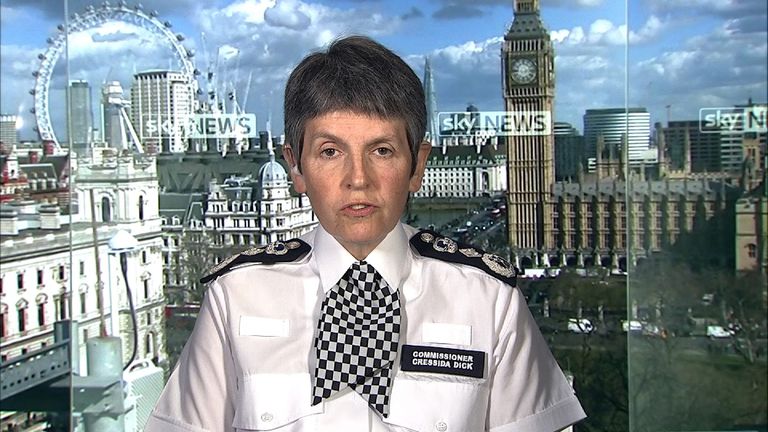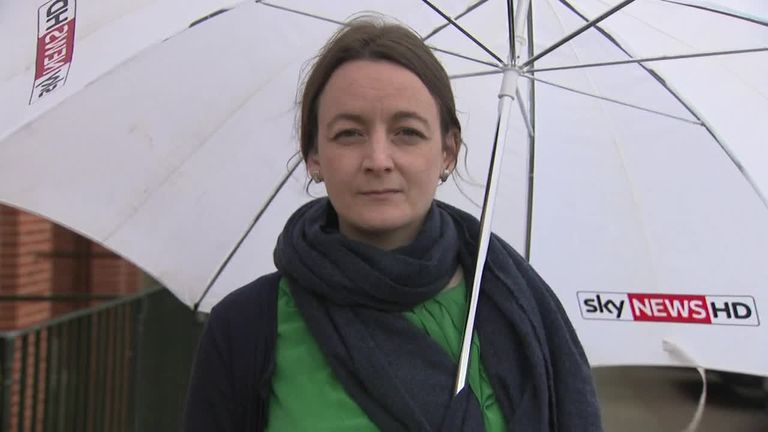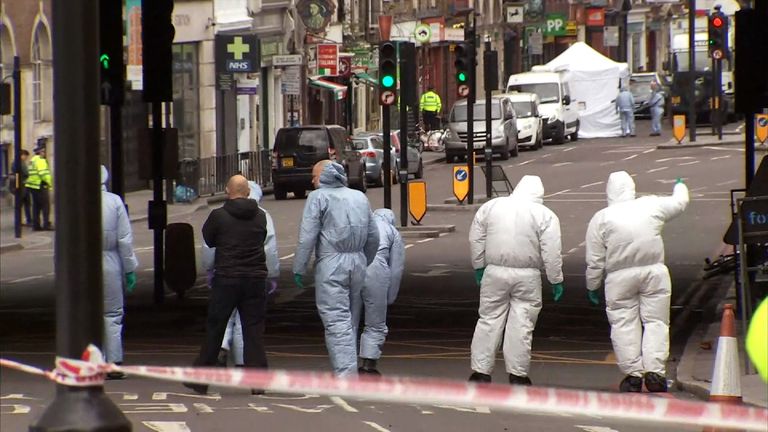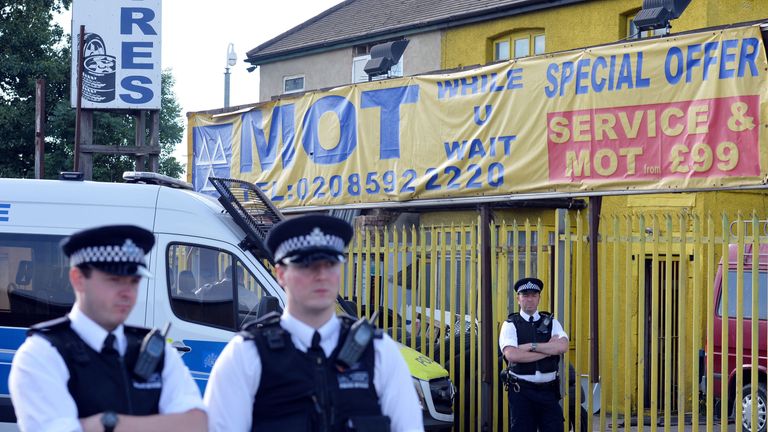Met chief says 'low-tech' attacks on soft targets 'changing' UK terror threat
Cressida Dick told Sky recent "low-tech" attacks against "easily accessed" targets are forcing police to change their approach.
Monday 5 June 2017 17:30, UK
Britain's most senior police officer says the terror threat to the UK is changing as rapidly radicalised extremists opt for unsophisticated attacks on soft targets.
Metropolitan Police Commissioner Cressida Dick told Sky News: "What we have been seeing generally are some quite low-tech attacks against targets which are easily accessed."
She said the task facing police is increasingly difficult.
The profile of extremists as people carefully groomed by others over a lengthy period, possibly overseas, is changing, while the number of potential suspects is growing rapidly.
"We are also seeing people who seem to be highly volatile who are going from behaving quite normally to making a plan and carrying out an attack in a very short space of time," she said.
"We do have literally thousands, in fact tens of thousands of people we regard as subjects of interest.
"We will know something about a lot of people and our challenge is to find out about those people we don't know about and work out the risk those we do know about pose at any one time," she added.
As Prime Minister Theresa May signalled a to tackling online extremism, Ms Dick accepted that the police must also respond to the evolving danger.
She said: "We now need to step up a gear and look at what we now need to do differently in the face of what does appear to be a changing threat.
"What's happened in the last week is utterly ghastly...I certainly hope that this is not the new normal," she added.
The call for a new plan to combat extremism was echoed by islamic expert, Dr Katherine Brown, who urged leaders to try understand why people become radicalised and ensure their responses are appropriate.
"What we really need to look at is how can we support those communities further, how can we as a society as a whole respond more appropriately to these attacks.
"Then looking as well at why it is that these individuals think that they have more in common with these extremist groups than they have with the rest of British society," she added.
As evidence of the scale of the threat to the UK, Ms Dick revealed that the number of arrests is growing: "We've been arresting about one person a day on terrorist offences."
She confirmed that police have foiled five plots since the Westminster attack in March and 18 in the last four years that "we knew were designed to cause mayhem, murder, destruction".
Police say of the three men who killed seven people and injured 48 in a marauding van and knife attack on London Bridge and the nearby Borough Market on Saturday night.
On Monday, further arrests were made after in east London.
Less than two weeks earlier, 22 people were killed in a suicide bombing at a Manchester concert while five died in a car and knife attack in Westminster in March.
Ms Dick admitted it is unclear whether UK extremists are being inspired from overseas as those attacks were carried out "mostly with a domestic focus, although there are international dimensions".









